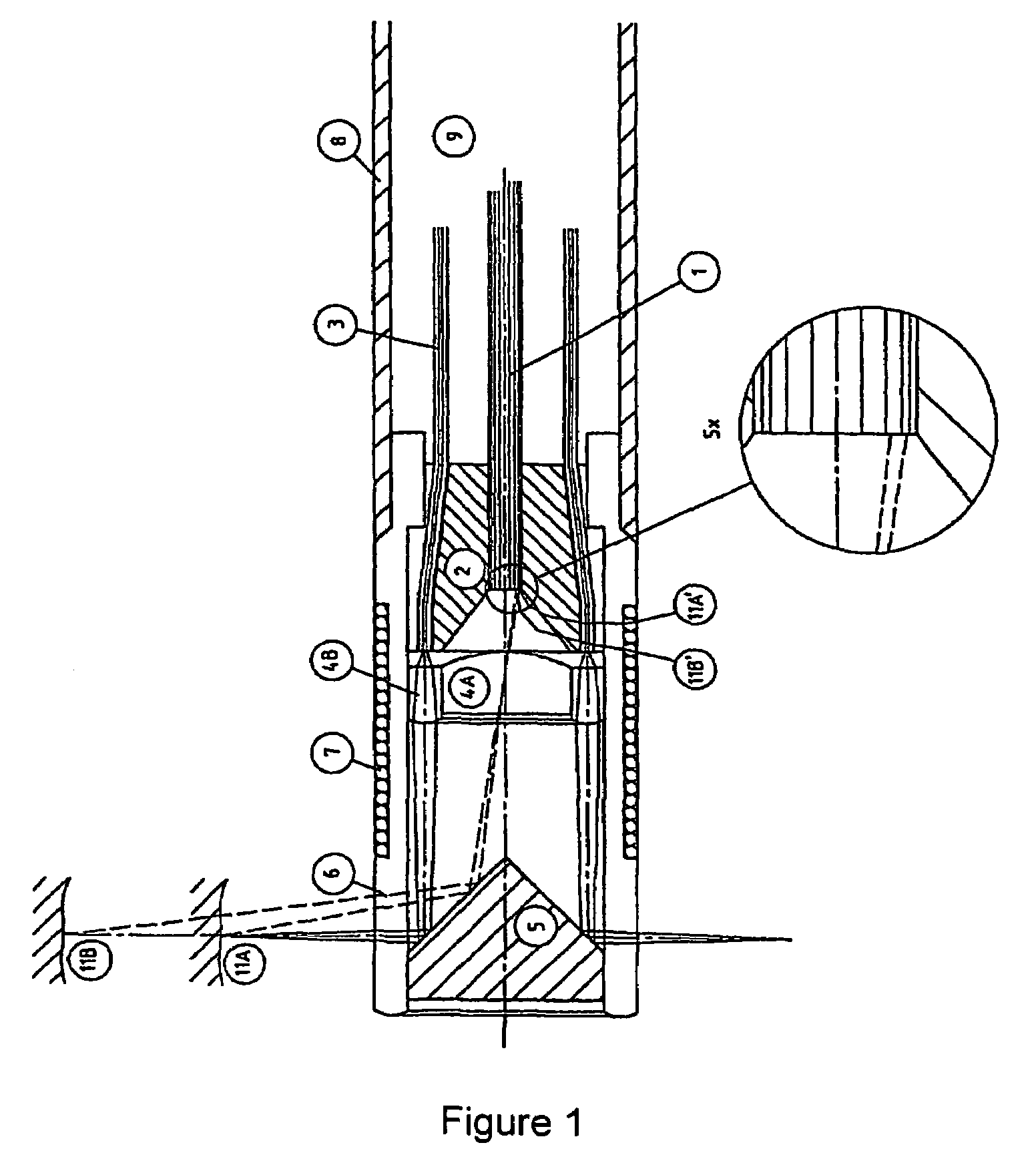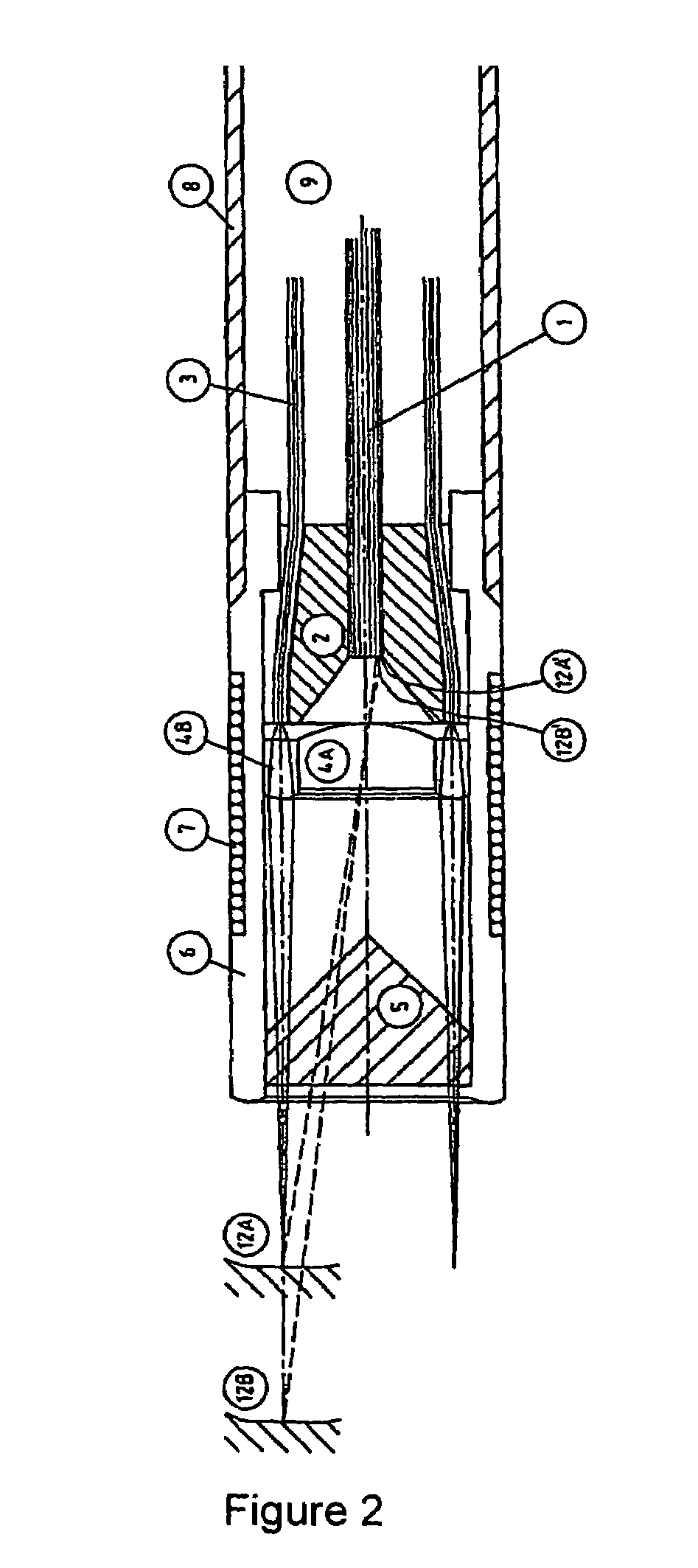Method and apparatus for locating foreign objects in the ear canal
- Summary
- Abstract
- Description
- Claims
- Application Information
AI Technical Summary
Benefits of technology
Problems solved by technology
Method used
Image
Examples
Embodiment Construction
[0044]The probe shown in FIG. 1 has a distal light emitting portion and a rod portion 9, which connects the distal portion to a proximal part (not shown). The rod portion 9 comprises a flexible pipe 8 and a set of light guides 3 and an image guide 1. The image guide 1 is placed centrally in the pipe 8, and the light guides 3 are arranged between the pipe 8 and the image guide 1. Near the tip of the probe the light guides 3 are fastened between an inner bushing 2 and an outer tube 6. An annular lens 4B is arranged at the bushing 2 to capture the light emitting from the light guides 3, in order to focus said light. The focused light beam is directed to a first portion of a mirror 5 mounted at the tip of the tube 6. The first portion of the mirror 5 has a circumferential conical plane with a top angle of 45°. Thereby the focused light beam emitted from the lens 4B will be directed in a right angel away from the longitudinal axis of the probe, and towards the surrounding canal wall 11. ...
PUM
 Login to View More
Login to View More Abstract
Description
Claims
Application Information
 Login to View More
Login to View More - R&D
- Intellectual Property
- Life Sciences
- Materials
- Tech Scout
- Unparalleled Data Quality
- Higher Quality Content
- 60% Fewer Hallucinations
Browse by: Latest US Patents, China's latest patents, Technical Efficacy Thesaurus, Application Domain, Technology Topic, Popular Technical Reports.
© 2025 PatSnap. All rights reserved.Legal|Privacy policy|Modern Slavery Act Transparency Statement|Sitemap|About US| Contact US: help@patsnap.com



